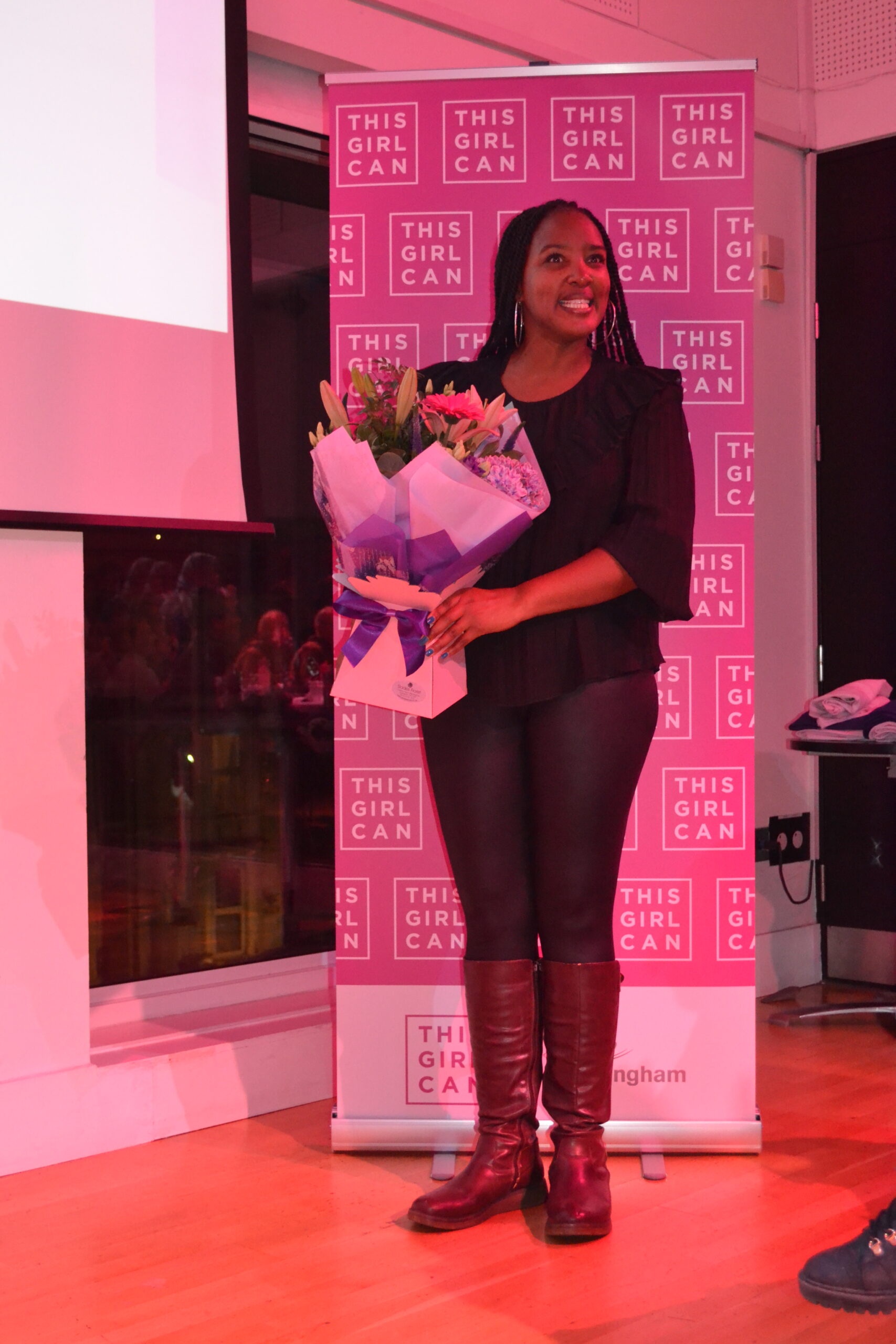Your basket is currently empty!
Charm Daley is a multi-talented, award-winning presenter, event host and physical activity advocate who works on several projects across Nottingham, many in collaboration with Active Notts and others.

Charm is an adored Zumba instructor with 13 years of experience, teaching dance to various communities whilst also working part-time as a Workforce Development Officer for This Girl Can Nottingham, helping to improve and increase representation in Physical Activity. In this role Charm focuses on developing opportunities to upskill the female workforce, raising expectations and develop opportunities for people to become leaders in physical activity -particularly those from marginalised communities.
She also works as a mentor for our Girls Active project, supporting girls from different schools in Nottingham and Derby to be more confident and physically active. Charm is also an entrepreneur who has created an educational global dance package that teaches children about different cultures through dance and music.
Throughout her work, Charm focuses on empowering women, particularly those from black and other underrepresented communities and backgrounds, through physical activity and community engagement. She sees herself as a role model to inspire others, and uses her own lived experiences to build meaningful relationships, connect with and inspire others.
Why is Charm so motivated by this work?
In my opinion movement is a birthright. And I think it’s something that should belong to everybody. And when I discover the joy of movement, the magic and how it makes me feel… I feel like I can take on the world. I know that sounds really dramatic, but I mean, I’ve got goosebumps thinking of it. And that empowerment and that magic, I just want everybody to feel and enjoy that and I understand why some people face more barriers than others.”
Charm Daley
Why is this so important to Charm?
“Life is really hard. It’s really, really hard.
Life as a woman is really, really hard. And life as a black woman, as a woman of color is really, really hard.
My mom used to talk about being a black woman is like being black twice.
And I just think, you can empower yourselves with those little tools and techniques which make accepting that just a little bit easier.
And so just I feel like that’s my responsibility to just share that with Nottingham and with the world.”
Charm Daley
Charm has many stories to tell about her experiences of being in the physical activity sector and being from a marginalised community and how that’s led to her feeling unsupported at times during her career.
For example, navigating spaces without fair representation, is a position Charm often finds herself in can be difficult and personally exhausting. This can come from regularly being the only person of colour, especially in larger settings, often in bigger, national meetings. “There is a pressure that can build from feeling that you have to ‘represent’ thousands of people every time you step into a space.”
Sometimes this can lead people to feeling defensive and overly self-aware and it’s difficult for someone to feel wholly comfortable and do their job to the best of their ability in this state of mind. If this is observed it’s important to recognise, show support and consideration for someone who may be feeling this and validate these feelings if they are shared.
Within this the intersectionality and lived experience of people is so key in shaping activities and provisions, which again emphasises the importance of growing a representative workforce, born out of equal opportunities and acceptance.
We’ve worked with Charm to develop some top tips on how we could all help to create a more equitable world and representative workforce.
Within this the intersectionality and lived experience of people is so key in shaping activities and provisions, which again emphasises the importance of growing a representative workforce, born out of equal opportunities and acceptance.
1. Provide genuine opportunities for growth, understanding that values and behaviours may be different to what you may be used to, or expect.
2. Compensate volunteers for their time, expertise, and contributions.
3. Develop education and inclusive cultures within organisations and share best practice.
4. Value diversity and diverse perspectives beyond superficial representation. Listening to and implementing feedback from the lived experience of those who you want to work with and support.
5. Offer long-term support, guidance and mentorship, rather than short-term engagements or appointments.
6. Think about addressing systemic issues within society and organisations that may be barriers inclusion. Such as being an ally and an active bystander where an opportunity arises.
7. Recognise and value the unique perspectives and experiences of all people and groups, without tokenising people to meet organisational objectives.
8. Ask how something can be made sustainable beyond funding pots. How can you get the most out of your resources to support professional development?
9. Work to develop representation at all levels of an organisation, including leadership positions. Often representation can develop in clusters and representation needs to happen across all levels.
10. Be transparent and authentic in your efforts. Hold yourself, your organisation, your partners and your client base accountable to develop meaningful change.
